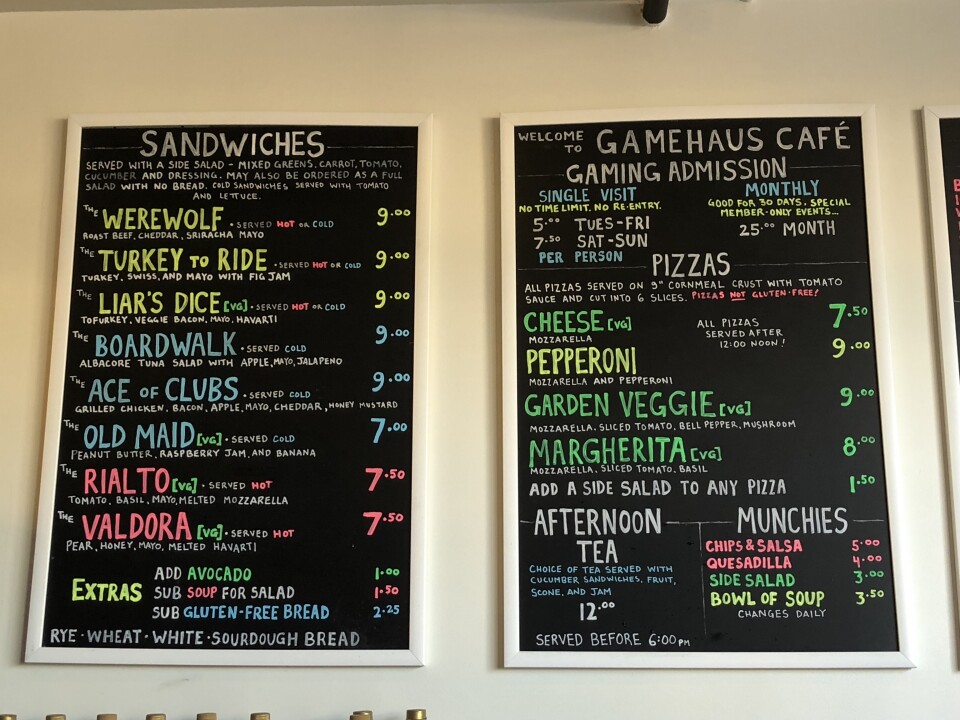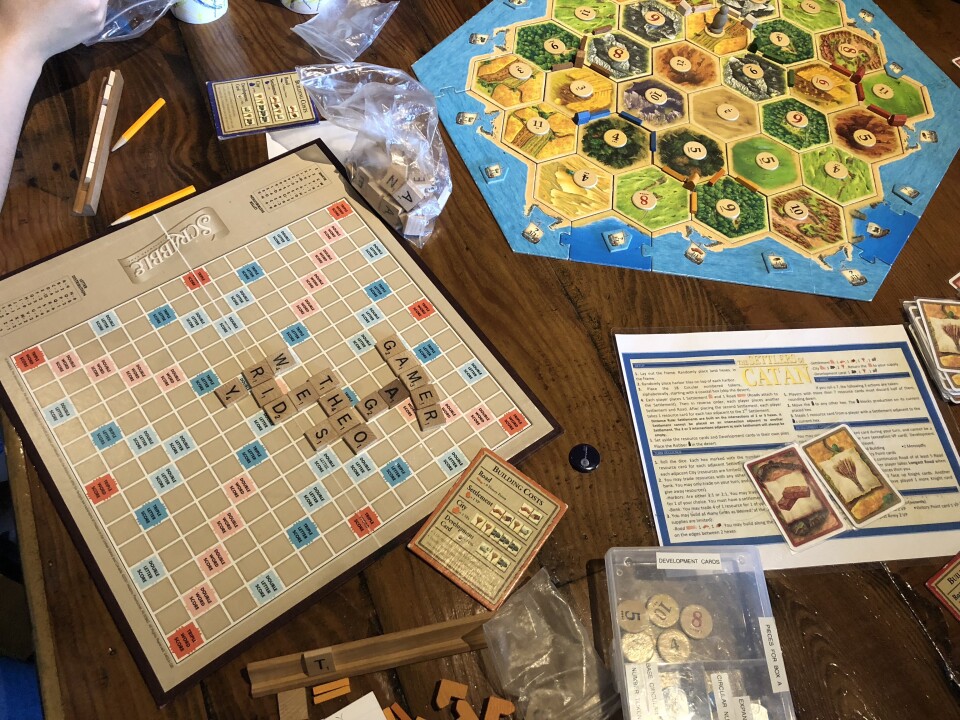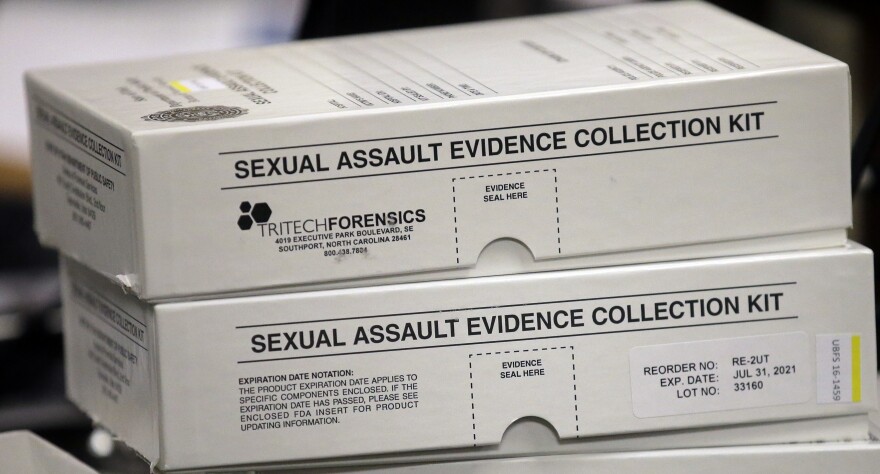The capture of the suspected Golden State killer shines a light on both DNA privacy rights and the rape kit backlog. Plus, unplug and enjoy some board games.
Republicans hope a gas tax repeal will drive voters to the polls
Take Two takes a look back at politics in the Golden State. This week:
• Republican law makers shell out thousands to repeal the "gas tax." Will it be enough to bring Republican voters to the poles?
GREAT NEWS! Gas Tax Repeal Initiative Qualifies for November Ballot.
— CAGOP (@CAGOP)
GREAT NEWS! Gas Tax Repeal Initiative Qualifies for November Ballot. #StopTheGasTax #GasTaxtrophehttps://t.co/mNE65yy6QV
— CAGOP (@CAGOP) April 26, 2018
Claremont McKenna's Jack Pitney outlines the best case scenario for Republicans if a "gas tax" repeal makes it on the ballot
It boosts GOP turnout a little which, in turn, may tip a couple of the close races for Congress and the state legislature. It's probably not going to make a difference in the statewide races – it's been a long time since we've elected a Republican in a statewide office, and that's probably not going to happen in 2018.
• A group continues to push for the state-secession plan known as Calexit, while others propose breaking California into three separate states.
says it's time to exit the American Union.
— #Calexit Campaign (@YesCalifornia)
#Calexit says it's time to exit the American Union. pic.twitter.com/tOPHKSIT3F
— YesCalifornia (@YesCalifornia) April 26, 2018
• A new poll shows Republican candidates are ahead of Villaraigosa in race for governor.
Republicans surge past Villaraigosa in California governor's race, Newsom strengthens his lead, poll says
— Angela Hart (@ahartreports)
Republicans surge past Villaraigosa in California governor's race, Newsom strengthens his lead, poll says https://t.co/L13grygcXk
— Angela Hart (@ahartreports) April 26, 2018
• Senator Kamala Harris shows popularity as potential presidential candidate among Democrats.
via
— David Siders (@davidsiders)
https://t.co/amLNIlNTPr via @politico
— David Siders (@davidsiders) April 26, 2018
Guests:
-
https://twitter.com/cmarinucci , senior editor for Politico's California Playbook -
https://twitter.com/jpitney , Roy P Crocker professor of politics at Claremont McKenna College
How a genealogy site helped find the Golden State Killer — and what that means for the privacy of your genetic profile
Details are continuing to come out in the Golden State Killer case about how investigators found their suspect, Joseph James DeAngelo.
It was a familial DNA match with crime scene evidence that led officials to suspect the former police officer. Officials found that match by using the database from a genealogy website where people post their DNA data to get information about their ancestry.
Using a genealogy website in an investigation like this is really unusual, said John Roman, forensics expert and senior fellow at the research organization NORC at the University of Chicago.
The normal procedure for an investigation is to test crime scene DNA evidence, thought to belong to the perpetrator with FBI DNA databases to look for a match, and if a match is not found the case goes cold, Roman said.
The problem with using a website like this is that there's no protocol, Roman said. The privacy protections that are in place in the FBI database do not exist in this situation.
"In order to make these cases, we really need to understand what the protocols and processes are in ways that we know ensure privacy and keep the evidence of the case intact in a way that makes it useful," Roman said.
The privacy of the website users is a serious issue, Roman said, because DNA information is such a unique identifier of an individual. so now the question is whether the site users could have reasonably expected their DNA data to be used in an investigation like this.
The issue of how the DNA was obtained from the website could be something DeAngelo's defense brings up in court, Roman said, but he hopes the prosecution will have other evidence to support their case so that question won't cause a problem.
"Everybody applauds the law enforcement diligence in this investigation and would really love to see it resolved," Roman said.
As DNA takes spotlight in serial killer case, thousands of California rape kits sit untested
After decades of waiting, victims of the Golden State Killer finally have justice in their sights. Authorities arrested Joseph James DeAngelo, the man believed to be responsible for terrorizing women up and down California for years.
The serial killer held many monikers. The Visalia Ransacker for a string of home robberies, the Golden State Killer for the dozen people he murdered, and the East Area Rapist for the sexual assault of 51 women.
The Golden State Killer's victims and their families lived for years without justice, but it was DNA evidence that eventually led authorities to DeAngelo.
DNA was the missing piece that solved the puzzle. But for thousands of women in California, the DNA evidence from their assault has never been tested.
To boot, California has access to a database of DNA samples– a pool of potential matches grown larger by a 2004 state law requiring DNA collection from convicted felons and others with criminal charges.
Advocacy groups estimate more than 13,000 rape kits have gone untested in the state.
"We know, as evidenced recently, that DNA solves crimes," said State Senator Connie Leyva. She's put forth Senate bill 1449 that would require newly collected rape kits to be analyzed within an immediate time frame. "We know that testing these rape kits will bring perpetrators to justice. We could catch rapists before they can rape someone else."
Law enforcement agencies have long said their respective backlogs were due to a lack of resources. In turn, Sen. Leyva's bill would liberate additional funding for agencies that apply. Federal funding is also available for testing and investigation.
If signed into law, SB 1449 would prevent newly collected kits from gathering dust without a drastic change to current law. Currently, the law says that rape kits "should" be tested. The big difference in Leyva's bill is updating the language to say "shall" in place of "should." "Law enforcement has lots of priorities," Leyva said. "Now we're saying, these go to the top of the list and have to be tested."
"Rape is one of the most traumatizing experiences of a person’s life, so it’s critical that rape kits are processed swiftly both to attain justice and to help identify and prosecute rapists so that we can keep them off the streets." #SB1449 VIDEO: https://t.co/koR6x7Fdsx
— Connie Leyva (@SenatorLeyva) April 3, 2018
DNA solves crimes. DNA prevents crimes.
Leyva pointed to a recently released documentary, I Am Evidence, as an example of how DNA can prevent future crimes. The film features rape victims whose kits have never been processed, including a specific case where DNA evidence from a first victim could have prevented the assault of a second, had the DNA been utilized.
Justice for crimes past.
Even if California mandates that new kits be tested, there's still the thousands of shelved kits still in storage. Assembly bill 3118, by Assembly member David Chiu, would require any agency that stores rape kits to conduct an official audit of exactly how many kits are in their possession and report the data to the Department of Justice. "If Assembly member Chiu's bill is passed, and once we know what the backlog is, then I think we can put together a plan to tackle it," Leyva said.
The processing of a rape kit is no walk in the park. After the trauma of an assault, women and men then undergo an invasive examination. "And it doesn't get tested," said Leyva. "It just adds insult to injury."
#MeToo and the will to make change.
California's rape kit backlog is a longstanding issue that legislators have attempted to address through various bills with little success. "We're in a time when we're saying time's up, enough is enough, we're not going to take this anymore," said Leyva. "We're really seeing women stepping forward and saying, I want to make sure that no other woman suffered like I have suffered."
Got old pills? National Prescription Drug Take Back Day will get rid of them
A lot of people's medicine cabinets have at least a few expired bottles of something. Old antibiotics, pain meds -- bottles so old they probably can't even remember what ailment brought them to the doctor to get them in the first place.
But tomorrow, April 28, is National Prescription Drug Take Back Day. It's when police and sheriff's departments throughout the country accept unwanted, unused or expired medications.
Designed to prevent drug addiction and overdose deaths, it's run by the Drug Enforcement Agency, which says 64 million Americans abuse controlled prescription drugs like fentanyl, vicodin and oxycontin. Many of those drugs are obtained from the medicine cabinets of family and friends.
During the last Take Back Day, the DEA collected 456 tons of prescription drugs.
For more information on where to drop off old, unused meds, there's a collection site locator online: TakeBackDay.dea.gov.
But if you aren't able to get to one of the take-back sites during Take Back Day, it's best not to put unused prescription drugs in the trash or flush them down the toilet. They could end up in the water supply.
Many pharmacies, including CVS and Walgreens and Kaiser, have take-back boxes available year round.
Faced with cancer, these young people picked up a camera
California students are seeking more campus mental health services
The accrediting agency for campus counseling centers recommends colleges have one counselor for every 1,000 to 1,500 students. But only eight of the 23 California State University campuses meet that standard, and some community colleges don't offer any counseling services at all.
Mental health advocates say on-campus care is especially important because it's those young adult years when many people first experience psychological problems.
A recent survey showed that over a five-year period, enrollment on campuses nationwide went up about 5%. As a result, "the demand by students for mental health services went up 30% in that same time period," said Felicia Mello, higher education reporter at CAL Matters who has been writing about this.
Depression and anxiety are some of the biggest issues that counselors say they're seeing amongst students. On California campuses, in particular, the need for these services is growing. As Mello explained, the reasons behind the increase can be three-fold.
Cost of living: "Students are dealing with increased living expenses. As the cost of living rises in the state overall, students are stressed out over whether they'll be able to afford meals or a place to stay."
Politics: "Another factor is the contentious political climate over the past couple of years. Students are reporting a lot of stress in that context."
Acceptance: "You see a little bit less of a stigma around seeking out mental health services. Students are more likely to be coming forward and saying, 'Yes, I have this problem. I need some help,' and so that might explain some of the increase in demand as well."
The lack of these services is in large part due to a decrease in funding. The CSU system is aware of it. When Mello spoke to the director of student wellness, Denise Bevly, Bevly said the strategy so far has been prevention. CSUs are focusing on early intervention with services like support groups, in an effort to curb students reaching a crisis point.
Likewise, there are legislative moves happening to address the problem. One bill, in particular, proposes that the International Association of Counseling Services' recommendation, to have one full-time campus counselor for every 1,500 students, should become a requirement. While several other bills are aiming to set aside resources for these types of services.
It's all fun n' board games on International Tabletop Day
April 28 is International Tabletop Day, when people unplug their phones and play old-fashioned board games.
Angelenos might already own household games like Risk, Parcheesi or Clue, but Game Haus in Glendale has even more. The cafe owns more than 1,700 board games, from basics like Mouse Trap to classics like Catan to more obscure titles like Terra Mystica.

Robert Cron explains the business model for the cafe.
"You pay a flat fee per person, you can stay as long as you want and play as many games as you like on the shelf. We've got the food and drinks available at the cafe as well," Cron says.
Prices are $5 on weekdays and $7.50 on weekends. The cafe is also available for birthday parties, farewell parties, even wedding receptions.

Yeon Kim and her friends were having a bit of an analysis paralysis. That's why they were playing two games at the same time.
"I won this round and we are going into the second round," Kim says.
Luis Galvan was having an iced coffee while playing a game called Wiz-War for the first time. It's an obscure game about wizard warfare.
"Whenever we come to Game Haus, we try to play games we haven't played just to test them out. Some of them can last six hours," Galvan explains.

Rob Cron says that ultimately the cafe puts food first, games second.
"That's how you make money. It's a restaurant that doesn't turn tables," Cron says.
Maud Monteil had made the trip to Glendale from Culver City. Originally from France, she was happy to discover a board game cafe in Los Angeles.
"We've been to a few in Paris, and Bordeaux, and I have to say this one is the best," Monteil says.

"This is a city where we spend so much time in our cars. We are always trying to get to the next place, figuratively and literally," says Terry Chiu. He co-owns Game Haus and is the cafe's in-house baker. He thinks this type of place is an oasis for Southern California.
"It's a nice relief for folks to come with family and friends, and not worry about spending three hours getting across the city," Chiu says.




